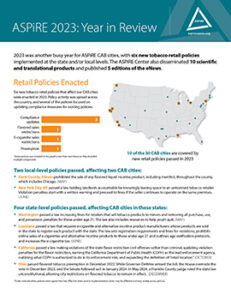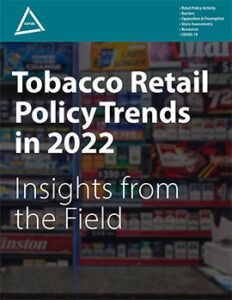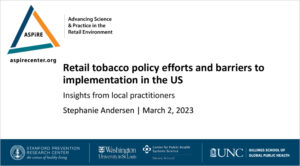Supply and demand effects between tobacco retailer density and smoking prevalence
An ASPiRE team that included Shelley Golden, Todd Combs, Kurt Ribisl, and Chris Baggett examined the role of consumer demand and supply of tobacco in the retail environment in the association between tobacco retailer density and smoking prevalence. Study results indicated that policies that restrict access to retail tobacco have the potential to reduce smoking [...]



